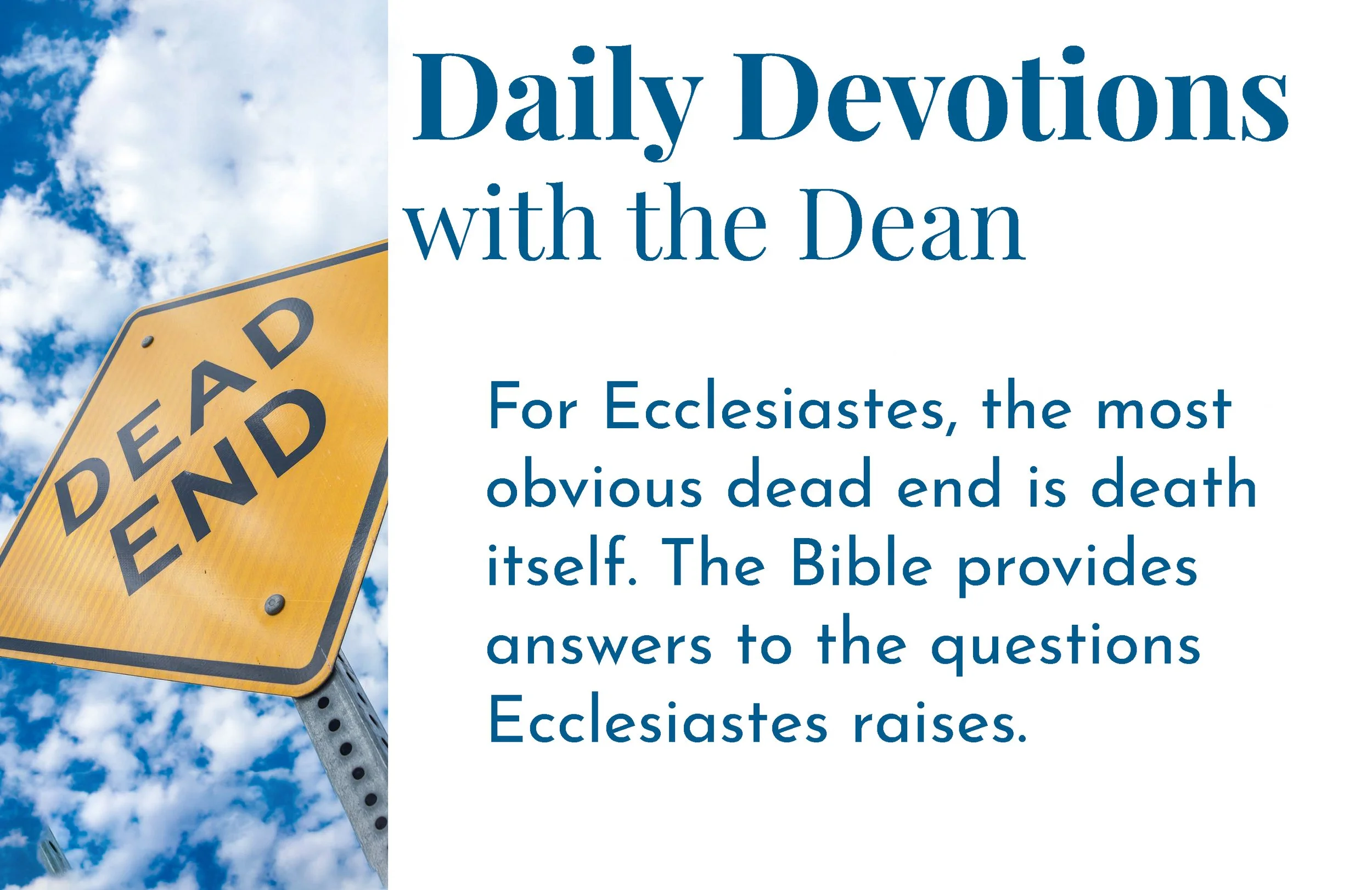Thursday • 6/30/2020
This morning’s Scriptures are: Psalm 131; Psalm 132; Psalm 133; Numbers 23:11-26; Romans 8:1-11; Matthew 22:1-14
This morning’s Canticles are: following the OT reading, Canticle 8 (“The Song of Moses,” Exodus 15, BCP, p. 85); following the Epistle reading, Canticle 19 (“The Song of the Redeemed,” Revelation 15:3–4, BCP, p. 94)
An audio or video version of this devotional can be found here: Apple Podcast, Spotify Podcast, YouTube
Balaam’s second oracle. In this second of four oracles that Balaam is to deliver to Balak king of Moab, the seer reiterates Yahweh’s message that, “The Lord their God is with them, acclaimed as a king among them” (Numbers 23:21), and that no matter what, “no enchantment, … no divination” will prevail against Israel (Numbers 23:23). It’s humbling to watch Balaam say truthful and faithful things when we know his heart is actually far off.
Whenever we are surrounded by voices that come from mixed motives and hidden agendas—talking heads on the right and on the left who know they are lying to us but do so anyway, politicians who put their fortunes above people’s well-being—it’s important to keep listening for the Lord’s voice. He is King, and eventually his purposes will prevail.
Romans 8 is Paul’s elegant and powerful response to his own question: “Who will deliver me from this body of death?” In Romans 8, he revels in the combined work of Father, Son, and Holy Spirit to accomplish just such a deliverance.
Father. In this first paragraph (verses 1-11), Paul says that what the law could not do, God (meaning the Father) does: he sends his Son. There’s no such thing as a bad Old Testament God and a good New Testament God. As Paul has already said, “God proves his love for us in that … Christ died.” The Father puts his only beloved Son to the service of taking away the sins of the world, so that, in the words of the Anglican Puritan theologian Richard Sibbes, “God the Father, the party offended by our sins, is…well pleased with the work of redemption.” The entire mission of rescue is a mission of the Father’s love.
Son. The mess that we could not get ourselves out of is the feeling—indeed, the knowing—that our sins merit utter condemnation from God. But now there is no condemnation, because the Son has come, says Paul, “in the likeness of sinful flesh, and for sin.” What a universe of meaning in those few words!
…in the likeness…of flesh — Jesus Christ is like us in all things, save sin. He assumed the totality of our humanness so that the totality of our humanness could be saved—from the top of our heads to the tips of our toes! As the early church fathers said, “What cannot be assumed cannot be saved.”
in the likeness of sinful flesh — God’s unfolding design ever since the Garden has been to gather up and to concentrate all the world’s sin into One Person—a Second Adam—who would stand in for all the rest of humankind, receiving in his own Person the full weight of the consequences of every sin ever committed. Note the “where” of Romans 5:20—“where sin increased, grace abounded all the more.” That “where” was ultimately Calvary, where Isaiah 53’s Suffering Servant hung, “pierced for our transgressions … to justify the many” (Romans 4:25, and Isaiah 53:4-6, 11-12).
and for sin. This is a most intriguing phrase. In Leviticus 5:7-8; 6:25 (= 6:18 in the Greek), it’s the offering for the little sins: the guilt offering. The big sins are handled by the propitiation of the Day of Atonement (to which Paul has already referred in Romans 3:25-26). Here in Romans 8, Paul wants us to know God also taken care of the tiny sins too—the unconscious, unintentional, not-exactly-what-I-intended sins. Those are the kind of sins that provoke the inner anxiety of Romans 7:14-25. It’s amazing—and comforting—that these are the sins that Paul would focus on here. His point is that Christ’s sacrifice is so exhaustive that it takes care of the subtlest and smallest as well as the most obvious and biggest-ticket sins. It takes care of the ones we can easily walk away from and forget (until maybe the middle of the night!) and the ones that will accuse our consciences day and night, all the days of our lives. No matter how trifling, no matter how enormous, Christ has handled them.
Holy Spirit. The Father loves us, and therefore sends the Son. The Son comes and offers himself “for sin.” The Holy Spirit’s part is to become God’s onboard presence in our lives—which is largely Paul’s subject in the rest of this chapter. But for now, briefly, Paul wants us to know that the Spirit of God makes his home within us and begins to set our house in order.
The Spirit of God enables a “walk,” declares Paul, that (utterly amazingly!) fulfills “the just requirements of the law” (Romans 8:4). I’ll write that again: The Spirit of God enables a “walk” that fulfills “the just requirements of the law” (Romans 8:4). That means—staggeringly!—that when God sees you and me taking baby steps, what he sees is giant Spirit-empowered strides. When we feel like we are offering obedience that is but scraps, God receives it as an abundance produced by the Spirit of the One who fed 5,000 with two loaves and five fishes. When we are aware our motives are mixed, God purifies them by the Spirit of love that he has poured out in our hearts because we are in Christ.
God loves us. The Son gives himself for us. The Holy Spirit lives in us. The result: We—grab on to this!—offer love for God and neighbor that God himself finds satisfying. The mindset is utterly different than the “I’m a worthless shlub” mentality that besets so many people. I pray that this truth breaks in upon you today—and makes this a very special day.
Be blessed this day,
Reggie Kidd+
Image: "an unwitting victim...bwahahhahahaa" by bark is licensed under CC BY 2.0.












